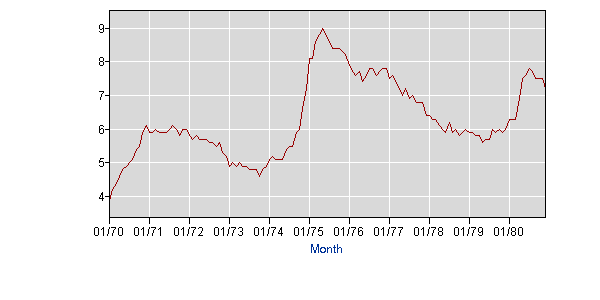May 12, 2017
I’ve had people ask me, so I went back to refresh my memory. Yes, it was very bad news as the Watergate scandal unfolded and Nixon was eventually forced to resign. The economy slipped into a recession beginning in November of 1973, with the unemployment rate rising from a low of 4.6 percent in October of 1973 to an eventual peak of 9.0 percent in May of 1975.

Source: Bureau of Labor Statistics.
Having put these numbers on the table, I’m not sure how much of this can be attributed to Watergate and the crisis of the Nixon presidency. The proximate cause was the Arab oil embargo which quadrupled the price of oil at a time when the U.S. was far more dependent on oil than is currently the case. Nixon also removed the wage and controls which were intended to keep inflation under control through the 1972 election. Throw in a wheat deal with the Soviet Union that sent wheat prices soaring and you have a serious inflation problem.
The Fed responded by slamming on the brakes which gave us at the time what was considered to be a pretty awful recession. Would Nixon have done anything to save the economy if he wasn’t struggling to save his presidency? It’s hard to say to say what he could or would have done, but the story as it played out was not pretty.







Comments